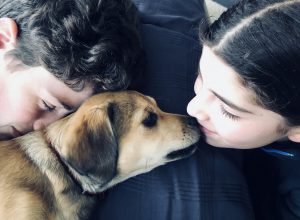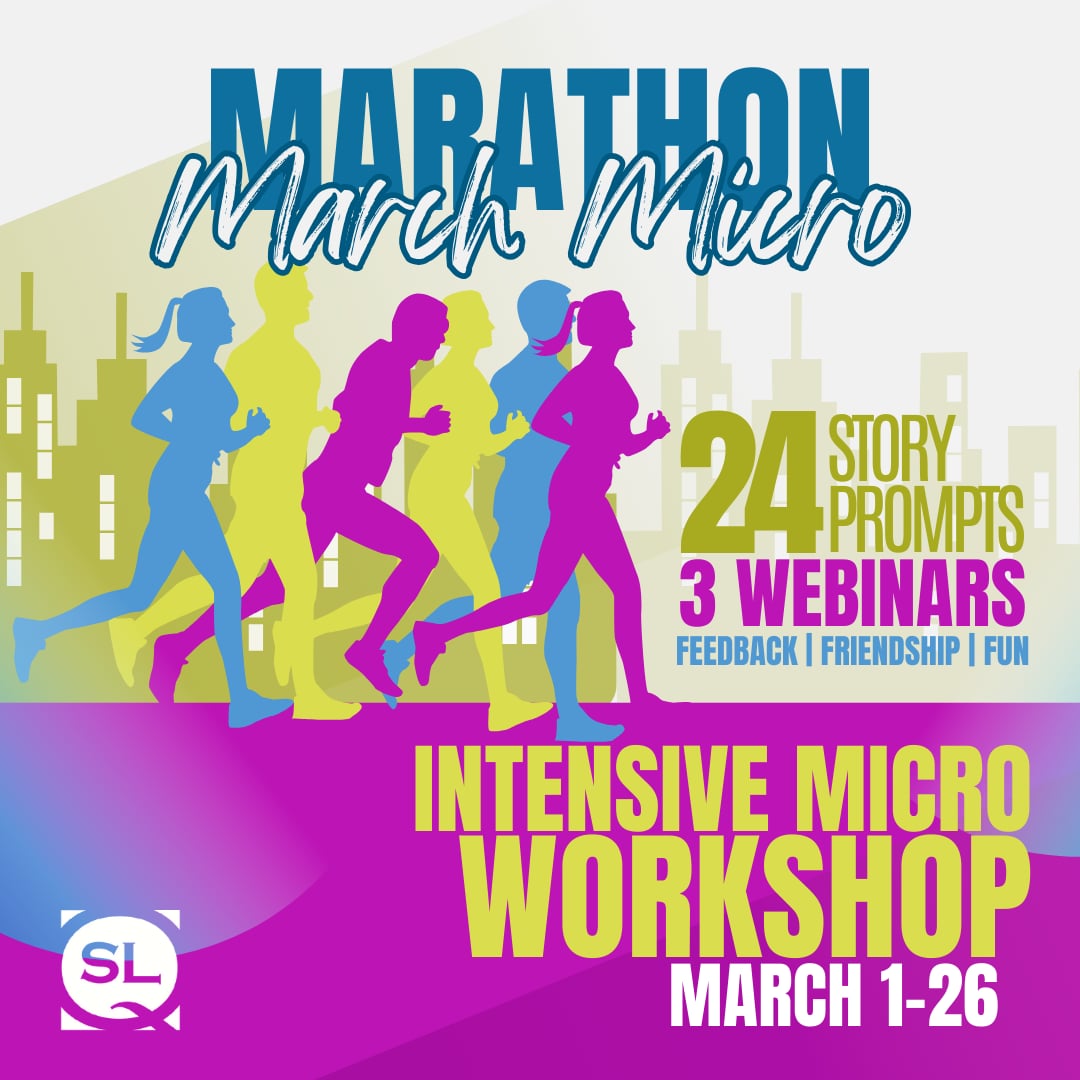The last time we talked was when you were our guest editor for the week of November 18th. We’re beyond thrilled to have you join us again now as our very first quarterly guest editor! In November, when I asked what you were looking for in a story, you said, in part, an honest story. Are you looking for the same thing now? What could a writer do to keep you reading?
I’m always looking for an honest story. I’m also looking for an urgent story, one the reader cannot easily dismiss or look away from, a story that feels born by necessity. That’s imperative. I’m also looking for tone, for the inimitable balance of emotion and restraint that can crush me. I love a story that challenges. A story rife with nuance, without easy answers. I would never say anything is a categorical deal breaker! But, perhaps I’m less tolerant of stories that reveal authorial hand, stories that glom onto trends, stories that feel less like stories and more like platforms for performativity or brand extension. Sure all writing is performative to some extent, and while self-consciousness has its place (Etgar Keret being one of my all-time-faves) I guess what I’m saying is writing that calls attention to itself for the sake of calling attention to itself is less appealing. As is writing that is trying hard to dial into the zeitgeist and ends up feeling tired. We’re tired enough.
Go beyond the selfie, go beyond Instagram. Engage that bullshit meter. As Philip Roth said, “Literature is not a moral beauty contest.”
To that end, I’m looking for a story that is not airtight, but leaves room for the reader, a story that does not overdeliver, and because of this, keeps working on me long after I finish reading, inviting multiple reads, with the effect of cracking wider the window — I guess we call this resonance — and letting fresh air in.
One of the things we talked about last fall was getting into a writing rhythm after our kids returned to school. Obviously, a lot has changed since then. My son is now in school at our dining room table while my husband teaches upstairs and life has been completely upended. It’s been surprisingly lovely in some ways, the rhythm of our life has slowed down considerably and we have more time to connect, but my writing and reading life has taken a real hit. I haven’t written anything for many, many weeks, and most of the books I’m reading are about simplicity and organizing. I’m curious how your writing and reading life has changed due to the coronavirus pandemic. Have you been able to find a new rhythm?
We rescued a dog the first day of lockdown. (I realize there’s been lots of talk of pandemic pups, but it was actually serendipitous, as we’d been trying, and failing, to adopt for months.) Which is to say, I spent the first month strung out on puppy demands like a newborn mother, trying to sleep train, steeped in pee and poo, an absolutely loving, necessary if exhausting distraction from the constant sirens and fear. I used to be a before dawn writer, but if I rouse too early now I wake the pup and it’s back to doggy daycare — but I’m trying to be gentle with the fact that I’m not writing. I’m tweeting. God help me. Mostly I’m there for the animal pics and literary good news. And the stories!
 How I wish I had tips or inspiration to share — but I’ve got nothing. It’s hard to talk about this time because everyone is raw, we’re all going through it, in similar but also vastly different ways, and while it takes my breath away how dire and grim it feels, the gravity and scale of suffering, the disparity is truly horrendous.
How I wish I had tips or inspiration to share — but I’ve got nothing. It’s hard to talk about this time because everyone is raw, we’re all going through it, in similar but also vastly different ways, and while it takes my breath away how dire and grim it feels, the gravity and scale of suffering, the disparity is truly horrendous.
To even have the luxury to contemplate art making is an enormous privilege.
I imagine some are churning out words left and right, while others are finding themselves without a minute to pee. The whole experience has been numbing. Cook, eat, clean, cry. My kids are in distance school with different degrees of independence. My husband’s work has been pummeled. So many have sickened. But the cherries are in bloom, and the tulips erupting, and the days continue to go on. How to reconcile the beauty and sorrow? I take masked walks almost daily with my kids. They are twelve and fourteen, and like everyone else, they are struggling, and our conversations are real, and I feel very lucky to have their spirited company and friendship.
Reading has been a challenge. (Showering has been a challenge.) A rhythm of any kind has been a challenge, but I’m finding solace in novels that offer an escape. I’d recommend Anna Solomon’s The Book of V., which just came out, and is absolutely spellbinding. And I just finished Rachel Ingalls’ novella Mrs. Caliban, which is sublime, and just what I needed: delightfully strange, subversive, heartbreaking, and viciously spot-on. Arielle Greenberg’s new collection I Live in the Country & Other Dirty Poems is smoking hot and smart as hell and affirming and alive.
Congratulations on your new addition! I love hearing stories about people bringing pets into their lives during this time. I can’t think of a better time to do it, minus the sleepless nights. What you said about being gentle with yourself for not writing resonates with me. I have to keep reminding myself that these are not normal days, that whatever I’m feeling or doing is okay, that this strange time will eventually end. I’m listening to more podcasts now and a new favorite is Dani Shapiro’s “The Way We Live Now,” where she interviews people about, well, the way we live now. She ends each interview by asking her interviewee what is bringing them hope or comfort. So I’ll end this interview by asking you the same question: what is bringing you hope or comfort right now?
Can’t talk about hope and comfort without first acknowledging my immense privilege. My family is together. I am well stocked. I think we may even have yeast.
— Exercise. Without boring you with my mental health (though if anyone wishes to talk, my DMs are open), exercise is both integral and difficult to sustain. I was supposed to be training for a half-marathon, and while that has fallen by the wayside, I have started to take my son on very short, masked jogs. It is stressful being outside. But he, too, has some of my unfortunate genetic makeup, where it feels impossible to move when we’re down and yet moving is the only thing that will help alleviate some of that low). Running has literally saved my life. I wish I had this as a coping mechanism when I was his age — instead of all those drugs.
I’m also a fan of the app Down Dog. Sometimes I forget I am a body. Yoga helps me remember that body.
–There is a writer who lives nearby who posts a poem on a chalkboard daily, which has become a destination for us, for the whole neighborhood.
–My neighborhood erupts for the daily 7 pm cheer for first responders. People spill out of their homes.
— People. Although Zoom gives me anxiety (the cruelty of having to look at your own face!) and I can be reclusive, I’ve found it meaningful — and far less self-conscious — to connect by old fashioned phone and email with friends near and far. For example, it’s been nourishing to connect with you, Shasta, and to talk honestly about our struggles and joys. I have another friend who regularly lifts my spirits with soulful, enriching letters, honest musings, and music recommendations.
–Music. Once again, music seems to nourish as much if not much more so than printed words right now. Laura Marling’s new album SONG FOR OUR DAUGHTER, which my friend recommended, is getting me through. Those lyrics on repeat.
— Social Media. I’m only on twitter, and although it’s disturbing how petty it still gets as the sky is falling, I also find it has a serotonin-like quality, mind-dulling and relaxing. Kind of like carbs.
— Carbs
— Cream cheese.
— Dreams
Now, if only I could reach for that pen when I rise to record them.


